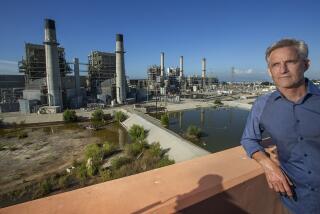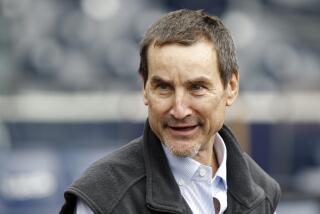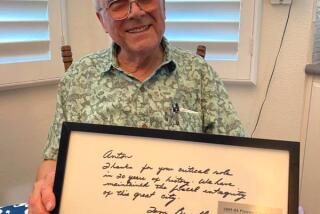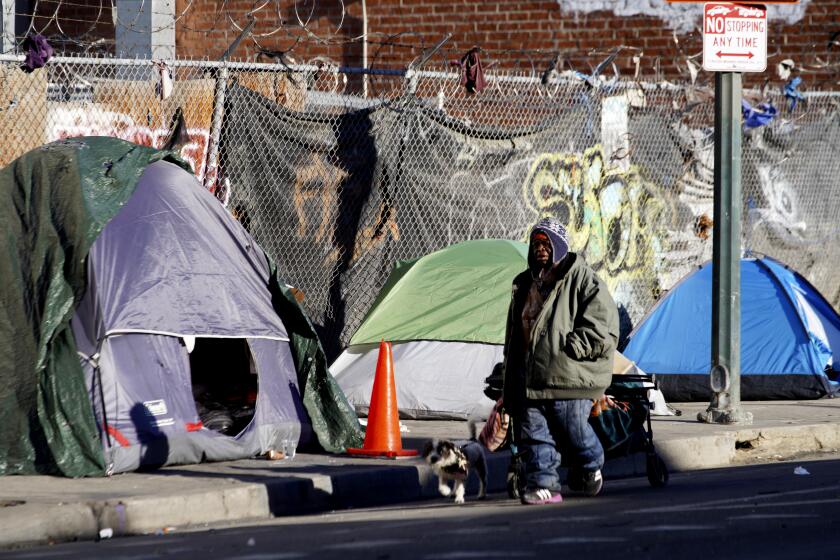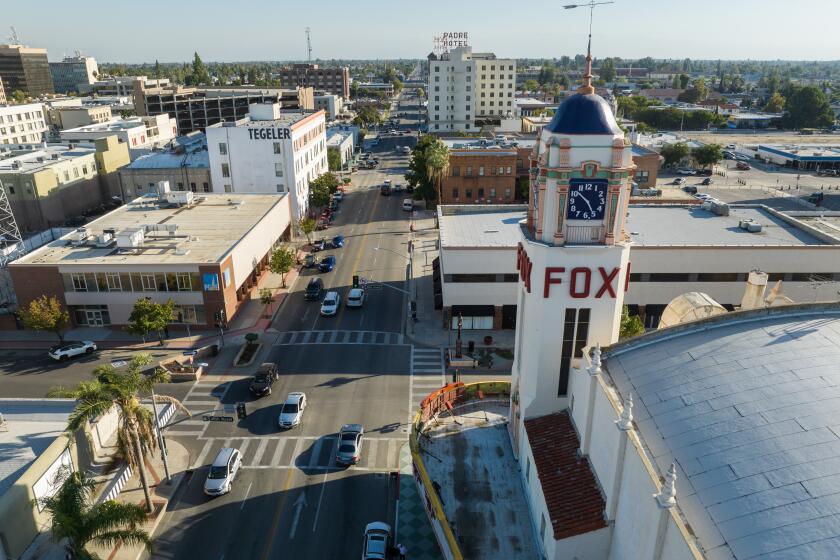Flags to fly at half-staff in San Diego after death of Tony Gwynn
Mayor Kevin Faulconer ordered flags at city facilities flown at half-mast in honor of baseball legend and civic icon Tony Gwynn, who died Monday at age 54 of cancer.
Faulconer also canceled two news conferences scheduled to discuss hot political topics: brush management and better lighting for Balboa Park.
“In this town today, no other news will matter, because Tony Gwynn has passed,” said George Mitrovich, president of the City Club of San Diego.
“We admired greatly his skills in sport, but we loved him more for who he was as a person.”
Within minutes of learning of Gwynn’s death, admirers began leaving flowers at the statue of Gwynn (“Mr. Padre”) outside Petco Park, home of the San Diego Padres. The statue area will remain open until 11:30 p.m. to accomodate mourners, the team said.
While the sports world remembered Gwynn’s batting titles, Gold Glove awards, and induction into the Hall of Fame, civic leaders remembered his other contributions to the city where he spent his entire 20-year career in the major leagues.
As a player, Gwynn was unfailingly modest, always praising teammates and downplaying his individual accomplishments. He remained in San Diego despite the fact that by declaring for free agency he undoubtedly could have earned more money in a larger market.
“Hard-working, passionate and always pursuing excellence, Tony Gwynn was a true San Diegan,” Faulconer said. “The only thing greater than Tony’s love for baseball was his love for San Diego.”
A baseball and basketball star at San Diego State, Gwynn returned to coach its baseball team after his retirement from the Padres in 2001. He was also a commentator on Padres’ broadcasts.
As news of Gwynn’s death spread, social media was full of eulogies, with descriptions of Gwynn as a civic treasure, role model for youth, and a unique personality.
Assembly Speaker Toni Atkins (D-San Diego) called Gwynn’s passing “an incredibly sad day for San Diego.”
Others called for thankfulness for Gwynn’s long association with San Diego.
“This was a better world because he was in it,” said political consultant John Dadian. “Don’t be sad. Be grateful.”
With his sunny, generous personality and infectious laugh, Gwynn melded well with San Diego as it grew into a major American city in the 1980s.
Columnist and baseball aficionado George Will, who profiled Gwynn in his book “Men at Work,” said that the closeness of Gwynn and the city was unusual in an era of free agency in which players shop their talents to competing franchises.
“It’s rare, and becoming rarer, that one man is so identified with a franchise and a city as Tony is with San Diego and the Padres,” Will said.
When San Diego State was hit by bad publicity over a drug bust, well-known graduates were featured in radio and television spots extolling the university’s virtues. Gwynn was prominent among them.
When city leaders asked voters to approve a bond issue in 1998 to replace aging Qualcomm Stadium, Gwynn was co-chairman of the campaign. The measure passed easily.
And when the Old Globe Theatre wanted to advertise its summer Shakespeare season, Gwynn was pictured with a bat, with a quote from Hamlet, “A hit, a very palpable hit.” Ticket sales zoomed.
Mitrovich noted that Gwynn’s death comes just months after the passing of longtime Padres broadcaster Jerry Coleman.
“Life is unfair and often cruel, which is underscored by our town having lost this year our two most beloved sports figures — Jerry Coleman and now, Tony Gwynn,” Mitrovich said.
More to Read
Start your day right
Sign up for Essential California for news, features and recommendations from the L.A. Times and beyond in your inbox six days a week.
You may occasionally receive promotional content from the Los Angeles Times.
